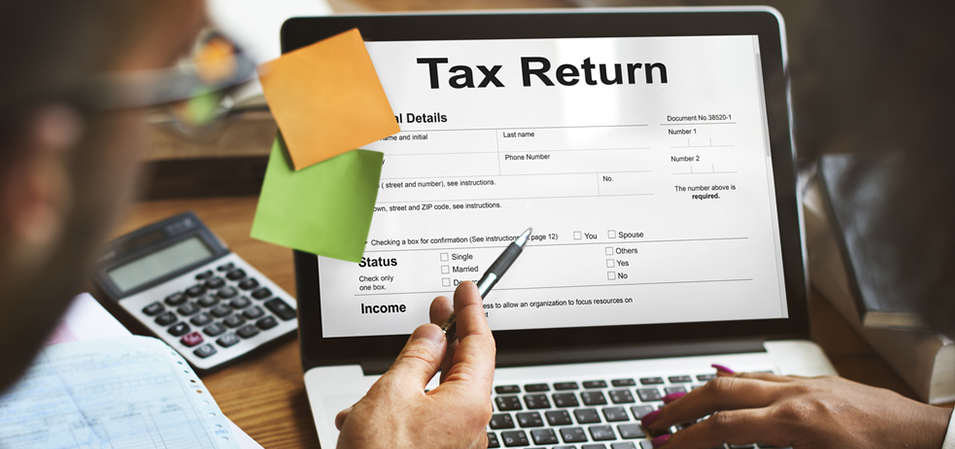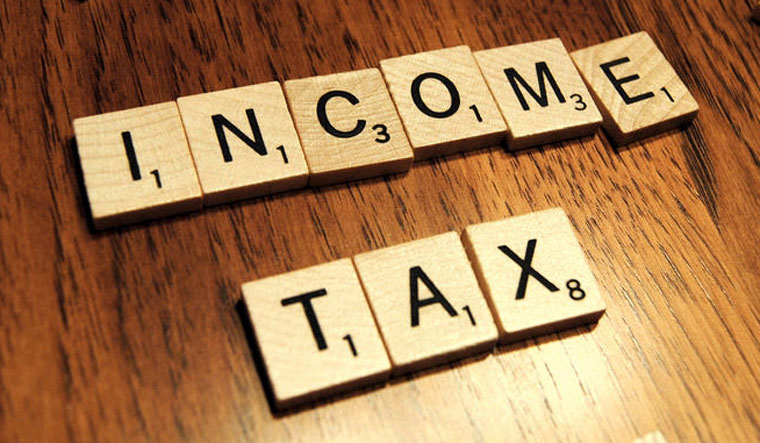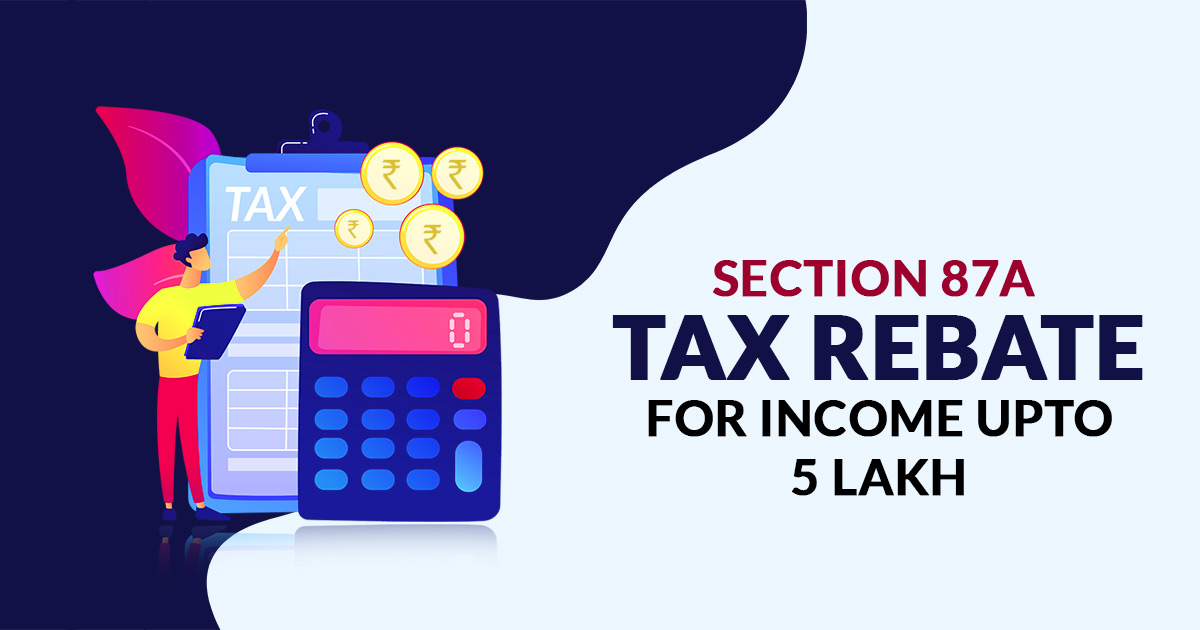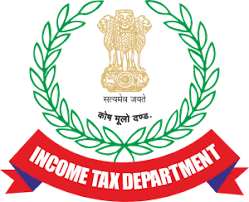What is return of Income
ITR stands for Income Tax Return. It is a prescribed form through which the particulars of income earned by a person in a financial year and taxes paid on such income are communicated to the Income-tax Department. It also allows carry -forward of loss and claim refund from income tax department.Different forms of returns of income are prescribed for filing of returns for different Status and Nature of income. These forms can be downloaded from https://www.incometax.gov.in/iec/foportal
What are the different modes of filing the return of income?
The Return Form can be filed with the Income-tax Department in any of the following ways, –
(i) by furnishing the return in a paper form;
(ii) by furnishing the return electronically under digital signature;
(iii) by transmitting the data in the return electronically under electronic verification code;
(iv) by transmitting the data in the return electronically and thereafter submitting the verification of the return in Return Form ITR-V;
Note
Where the return of income is filed in the manner given at (iv) without digital signature, then the taxpayer should take two printed copies of Form ITR-V. One copy of ITR-V, duly signed by the taxpayer, is to be sent (within the period specified in this regard, i.e., 120 days) by ordinary post or speed post to “Income-tax Department – CPC, Post Bag No. 1, Electronic City Post Office, Bengalore-560100 (Karnataka). The other copy may be retained by the taxpayer for his record.
Which mode of filing of return is applicable to whom?
The applicable return of income shall be furnished by a person mentioned in column (ii) of the Table below to whom the conditions specified in column (iii) apply, in the manner specified in column (iv) thereof:—
| Sl. | Person | Condition | Manner of furnishing return of income |
| (i) | (ii) | (iii) | (iv) |
| 1 | Individual or Hindu undivided family | (a)Accounts are required to be audited under section 44AB of the Act; | Electronically under digital signature; |
| (b)A super senior citizen (whose age is 80 years or above at any time during the previous year) who furnishes the return either in ITR-1 or ITR-4 | (A)Electronically under digital signature; or(B)Transmitting the data electronically in the return under electronic verification code; or(C)Transmitting the data in the return electronically and thereafter submitting the verification of the return in Form ITR-V; or(D)Paper form; | ||
| (c)In any other case | (A)Electronically under digital signature; or(B)Transmitting the data electronically in the return under electronic verification code; or(C)Transmitting the data in the return electronically and thereafter submitting the verification of the return in Form ITR-V; ] | ||
| 2 | Company | In all cases. | Electronically under digital signature. |
| 3 | A person required to furnish the return in Form ITR-7 | (a)In case of a political party; | Electronically under digital signature; |
| | (b)In any other case | (A)Electronically under digital signature; or | |
| | | (B)Transmitting the data in the return electronically under electronic verification code; or | |
| (C)Transmitting the data in the return electronically and thereafter submitting the verification of the return in Form ITR-V. | |||
| 4 | Firm or limited liability partnership or any person (other than a person mentioned in Sl. 1 to 3 above) who is required to file return in Form ITR-5 | (a)Accounts are required to be audited under section 44AB of the Act; | Electronically under digital signature; |
| | (b)In any other case. | (A)Electronically under digital signature; or | |
| | | (B)Transmitting the data in the return electronically under electronic verification code; or | |
| (C)Transmitting the data in the return electronically and thereafter submitting the verification of the return in Form ITR-V |
Is it necessary to attach any documents along with the return of income?
ITR return forms are attachment less forms and, hence, the taxpayer is not required to attach any document (like proof of investment, TDS certificates, etc.) along with the return of income (whether filed manually or filed electronically). However, these documents should be retained by the taxpayer and should be produced before the tax authorities when demanded in situations like assessment, inquiry, etc.
As discussed above, no documents are to be attached along with the return of income, however, in case of a taxpayer who is required to furnish a report of audit under section 10(23C)(iv), 10(23C)(v), 10(23C)(vi), 10(23C)via), 10A, 10AA, 12A(1)(b), 44AB, 44DA, 50B, 80-IA, 80-IB, 80-IC, 80-ID, 80JJAA, 80LA, 92E, 115JB or 115VW or to give a notice under section 11(2)(a) shall furnish it electronically on or before the date of filing the return of income.
sed by a person who is not required to furnish return under section 139(4A) or section 139(4B) or section 139(4C) or section 139(4D) (i.e., trusts, political party, institutions, colleges).
How to file the return of income electronically?
Income-tax Department has established an independent portal for e-filing of return of income. The taxpayers can log on to https://www.incometax.gov.in/iec/foportal for e-filing the return of income.Click here to view the step by step procedure to file Income-tax return online.
What is e-filing utility provided by the Income-tax Department?
The Income-tax Department has provided free e-filing utility (i.e., Java & excel) to generate e-return and furnishing of return electronically. The e-filing utility provided by Department is simple, easy to use and also contains instructions on how to use it. By using the e-filing utility, the taxpayers can easily file their returns of income. Utility can be downloaded from https://www.incometax.gov.in/iec/foportal
Is there any e-filing help desk established by the Income-tax Department?
In case of queries on e-filing of return, the taxpayer can contact 1800 103 0025.
What is the difference between e-filing and e-payment?
E-payment is the process of electronic payment of tax (i.e., by net banking or SBI’s debit/credit card) and e-filing is the process of electronically furnishing of return of income. Using the e-payment and e-filing facility, the taxpayer can discharge his obligations of payment of tax and furnishing of return easily and quickly.
Will I be put to any disadvantage by filing my return?
No, on the contrary by not filing your return inspite of having taxable income, you will be liable to the penalty and prosecution provisions under the Income-tax Act.
What are the benefits of filing my return of income?
Filing of return is your duty and earns for you the dignity of consciously contributing to the development of the nation. Apart from this, your income-tax returns validate your credit worthiness before financial institutions and make it possible for you to access many financial benefits such as bank credits, etc.
What are the benefits of e-filing the return of income?
E-filing can be done from any place at any time and it saves time and efforts. It is simple, easy and faster. The e-filed returns are generally processed faster as compared to returns filed manually.
Is it necessary to file return of income when I do not have any positive income?
If you have sustained a loss in the financial year, which you propose to carry forward to the subsequent year for adjustment against subsequent year(s) positive income, you must make a claim of loss by filing your return before the due date.
What are the due dates for filing returns of income/loss?
Due date of filing of return of income
| Sr. No. | Status of the taxpayer | Due date |
| 1 | Any company other than a company who is required to furnish a report in Form No. 3CEB under section 92E (i.e. other than covered in 2 below) | October 31 of the assessment year |
| 2 | Any person (may be corporate/non-corporate) who is required to furnish a report in Form No. 3CEB under section 92E | November 30 of the assessment year |
| 3 | Any person (other than a company) whose accounts are to be audited under the Income-tax Law or under any other law | October 31 of the assessment year |
| 4 | A working partner of a firm whose accounts are required to be audited under this Act or under any other law. | October 31 of the assessment year |
| 5 | Any other assesse | July 31 of the assessment year |
Will I be penalized on late filing of ITR even if I am not liable to file it?
No, late filing fee under section 234F not leviable in case you are not required to file ITR as per section 139 but filing it voluntary though after the due date.
If I fail to furnish my return within the due date, will I be fined or penalized?
As per section 234F, late filing fees of Rs. 5,000 shall be payable if return furnished after due date specified under section 139(1). However amount of late filing fees to be paid shall be Rs.1,000, if the total income of the person does not exceed Rs.5 lakhs.
Can a return be filed after the due date?
Return of income which has not been furnished on or before the due date specified under section 139(1) is called belated return. Belated return of income is furnished under section 139(4).Any person who has not furnished a return of income within the time period allowed under section 139(1) or within the time period allowed under a notice issued under section 142(1), may furnish return for any previous year – at any time 3 months before the end of the relevant assessment year or before completion of the assessment, whichever is earlier.
However, a belated return attracts late filing fees under section 234F. As per section 234F, late filing fees of Rs.5,000 shall be payable if return furnished after due date specified under section 139(1). However amount of late filing fees to be paid shall be Rs.1,000, if the total income of the person does not exceed Rs.5 lakhs.
Can a return of income be filed after the expiry of due date to file belated return?
The Finance Act 2022, has inserted subsection (8A) in section 139 to enable the filing of an updated return. The section provides that an updated return can be filed by any person irrespective of the fact whether such person has already filed the original, belated or revised return for the relevant assessment year or not (subject to certain conditions).An updated return can be filed at any time within 24 months from the end of the relevant assessment year.
If I have paid excess tax how will it be refunded to me?
The excess tax can be claimed as refund by filing your Income-tax return. It will be refunded to you by crediting it in your bank account through ECS transfer. The department has been making efforts to settle refund claims at the earliest.
If I have committed any mistake in my original return, am I permitted to file a revised return to correct the mistake?
A return of income can be revised at any time 3 months before the end of the assessment year or before the assessment whichever is earlier.
How many times can I revise the return?
If a person after furnishing the return finds any mistake, omission or any wrong statement, then return should be revised within prescribed time limit. A return can be revised at any time 3 months before the end of the Assessment Year or before the completion of the assessment; whichever is earlier. If original return has filed in paper format or manually, then technically it cannot be revised by online mode or electronically.
Revised return can be filed online under section 139(5).
Am I required to keep a copy of the return filed as proof and for how long?
Yes, since legal proceedings under the Income-tax Act can be initiated for past years, you must maintain copy of return. After the introduction of the e-filing facility, it is very easy and simple to maintain a copy of return of income.
There are various deductions that are not reflected in the Form 16 issued by my employer. Can I claim them in my return?
Yes, it can be claimed if you are otherwise eligible to claim the same.
Why is return filing mandatory, even though all my taxes and interests have been paid and there is no refund due to me?
Amounts paid as advance tax and withheld in the form of TDS or collected in the form of TCS will take the character of your tax due only on completion of self-assessment of your income. This self-assessment is intimated to the Department by way of filing of the return of income. Only then the Government assumes rights over the taxes paid by you. Filing of return is critical for this process and, hence, has been made mandatory. Failure will attract levy of penalty.
Am I liable for any criminal prosecution [arrest/imprisonment, etc.] if I don’t file my Income-tax return, even though my income is taxable?
Non-payment of tax attracts interests, penalty and prosecution. The prosecution can lead to rigorous imprisonment from 3 months to 2 years (when the tax sought to be evaded exceeds Rs. 25,00,000 the punishment could be 6 months to 7 years)
What is Form 26AS?
It is a form issued under Rule 114-I, wherein the following information related to taxpayer is published:
a) Information relating to TDS and TCS;
b) Information relating to Specified Financial Transactions (SFT);
c) Information relating to payment of taxes;
d) Information relating to demand and refund;
e) Information relating to pending proceedings;
f) Information relating to completed proceedings;
g) Information received from any officer, authority or body performing any functions under any law or information received under an agreement referred under section 90 or section 90A;
h) Relating to GST return;
i) Foreign remittance reported in Form 15CC;
j) Information in Annexure-II of the Form 24Q of the last quarter
k) Information in ITR of other taxpayer
l) Interest on Income Tax Refund;
m) Information in Form 61/61A where PAN could be populated;
n) Off Market Transactions Reported by Depository/Registrar and Transfer Agent (RTA);
o) Information about dividend reported by Registrar and Transfer Agent (RTA);
p) Information about purchase of mutual fund reported by Registrar and Transfer Agent (RTA); and
q) Information received from any other person to the extent it may be deemed fit in the interest of the revenue.
What to do if discrepancies appear in actual TDS and TDS credit as per Form 26AS?
Every person deducting tax at source has to furnish the details of tax deducted by him to the Income-tax Department. The details will cover the name of the deductee, Permanent Account Number of the deductee, amount of tax deducted, amount paid to the deductee, date of payment of TDS to the credit of Government, etc. On the basis of the details of TDS provided by the deductor, the Income-tax Department will update Form 26AS of the deductee.
Many times the actual amount of TDS and TDS credit as appearing in Form 26AS may differ and it may happen that the TDS credit appearing in Form 26AS may be less as compared to actual TDS, this may happen due to reasons like non-furnishing of TDS details to the Income-tax Department by the deductor, deducting the tax in incorrect Permanent Account Number, etc. In such a case the deductee should approach the deductor and request him to take the necessary steps to rectify the discrepancy due to above reasons.
The Income-tax Department updates the TDS details in Form 26AS on basis of details provided by the person deducting the tax (i.e., the deductor), hence, if there is any default on the part of deductor like non -furnishing of TDS details (i.e., TDS return) to the Income-tax Department, deducting the tax in incorrect Permanents Account Number, etc. then Form 26AS will not reflect the actual TDS. In such a case, the taxpayer may not be able to claim the credit of correct TDS. Hence, the taxpayers are advised to confirm the tax credit appearing in Form 26AS and should reconcile the difference, if any. If discrepancy is due to deductor , then he may file TDS/TCS correction statement and correct the same.
What precautions should be taken while filing the return of income?
The followings are the important steps/points/precautions to be kept in mind while filing the return of income:
1) The first and foremost precaution is to file the return of income on or before the due date. Taxpayers should avoid the practice of filing belated return. Following are the consequences of delay in filing the return of income/ Loss (other than house property loss):
a. Losses cannot be carried forward.
b. Levy of interest under section 234A.
c. Late filing fees under section 234F is levied for return filed after due date. Late filing fee of Rs. 5,000 shall be payable if return furnished after due date. However amount of late filing fees to be paid shall be Rs. 1,000, if total income does not exceed Rs. 5 Lakh.
d. Exemptions under section 10A, section 10B, are not available.
e. Deduction under 80-IA, 80-IAB, 80-IB, 80-IC , 80-ID and 80-IE, are not available.
f. Deduction under 80IAC, 80IBA, 80JJA, 80JJAA, 80LA, 80P, 80PA, 80QQB and 80RRB are not available. (From A.Y 2018-19)
2) Taxpayer should download Form 26AS and should confirm actual TDS/TCS/Tax paid. If any discrepancy is observed then suitable action should be taken to reconcile it.
3) Compile and carefully study the documents to be used while filing the return of income like bank statement/passbook, interest certificate, investment proofs for which deductions is to be claimed, books of account and balance sheet and P&L A/c (if applicable), etc.
4) No documents are to be attached along with the return of income. The taxpayer should identify the correct return form applicable in his case. Carefully provide all the information in the return form. Confirm the calculation of total income, deductions (if any), interest (if any), tax liability/refund, etc.
5) Ensure that other details like PAN, address, e-mail address, bank account details, etc., are correct.
6) After filling all the details in the return of income and after confirmation of all the details, one can proceed with filing the return of income. In case return is filed electronically without digital signature and without electronic verification code do not forget to post the acknowledgement of filing the return of income at CPC Bangalore within 120 days of filing return of income.
7) Taxpayer should check the Annual Information Statement (AIS) after login to e-filing account. AIS provides the information about the prepaid taxes and prescribed financial transactions entered into by the assessee during the relevant previous year.
8) For details on e-filing please log on to https://www.incometax.gov.in/iec/foportal
What is the eligibility for claiming rebate u/s 87A?
For AY 2022-23, following are the conditions for claiming rebate under section 87A:
• An assessee is a resident Individual
• Total Income does not exceed Rs. 5,00,000
• Maximum rebate allowed is 100% of Income tax or Rs. 12,500
Rebate under section 87A is not available to a non-resident individual, resident or non-resident HUF/AOP/BOI and company.However, a maximum rebate of Rs. 25,000 is allowed under section 87A, If the total income of an resident individual, who is opting for the new tax scheme under Section 115BAC(1A), is up to Rs. 7,00,000. Further, if the total income of the resident individual (opting section 115BAC(1A) exceeds Rs. 7,00,000 and the tax payable on such income exceeds the difference between the total income and Rs. 7,00,000, he can claim a rebate with marginal relief to the extent of the difference between the tax payable on such total income and the amount by which it exceeds Rs. 7,00,000
How to file return of income?
Return of income can be filed either in hard copy (Only ITR 1/4 in specified cases) at the local office of the Income-tax Department or can be electronically filed at https://www.incometax.gov.in/iec/foportal
Visit the below link for step by step guide for e-Filing of Income-tax return:
https://www.incometaxindia.gov.in/Pages/tax-services/file-income-tax-return.aspx
Can total deductions exceeds the Gross Total Income (GTI)?
Deductions provided under Chapter VIA of the Income tax Act, cannot exceed the Gross Total Income (GTI). Income here means all the income accumulated in the GTI and reduced by the incomes mentioned below.
- (LTCG) under section 112 of the Act
- Long Term Capital Gain (LTCG) under section 112A of the Act
- Short Term Capital Gains (STCG) under section 111A of the Act
- Incomes referred to in sections 115A, 115AB, 115AC, 115AD, 115BBA and 115D
- Casual incomes like winnings from lotteries, horse races, etc., under section 58(4) of the Act.
Do I need to file the income-tax return even when I have paid all the taxes in advance?
Filing of Income-tax return for individaul is mandatory for every person whose income (before considering certain exemptions and deductions) exceed maximum exemption limit. With effect from Assessment Year 2020-21, it is mandatory for every person, who is not required to furnish return of income under any other provision of section 139(1), to file return of income if during the previous year he:
1. Has deposited an amount (or aggregate of amount) in excess of Rs. 1 crore in one or more current account maintained with a bank or a co-operative bank.
2. Has incurred aggregate expenditure in excess of Rs. 2 lakh for himself or any other person for travel to a foreign country.
3. Has incurred aggregate expenditure in excess of Rs. 1 lakh towards payment of electricity bill.
4. Fulfils such other conditions as may be prescribed.
The CBDT vide notification No. 37/2022, dated 21-04-2022, has notified additional conditions under the seventh proviso to section 139(1) whereby return filing is made mandatory. These additional conditions are as follows:
1) If total sales, turnover or gross receipt of the business exceeds Rs. 60 lakh during the previous year; or
2) If total gross receipt of profession exceeds Rs. 10 lakh during the previous year; or
3) If the total of tax deducted and collected in case of a person during the previous year is Rs. 25,000 or more. The threshold limit shall be Rs. 50,000 in case of a resident individual of the age of 60 years or more; or
4) If the aggregate deposit in one or more savings bank accounts of the person is Rs. 50 lakhs or more during the previous year.
TDS has been deposited under wrong PAN. How can I claim that TDS?
TDS credit must be checked in Form 26AS before filing of Income-tax return. If it is not reflected correctly there may be several reasons like:
• TDS is not deposited by deductor
• TDS is deposited but return is not filed by deductor
• TDS is wrongly deposited under some other PAN
• TDS credit is not updated in Form 26AS
• Any other reason
When deductor deposits TDS under some wrong PAN, he has to make correction in the statement for PAN. In some cases, online PAN correction can also be made. Assessee can claim TDS in Income-tax return after that PAN correction.
****
Don’t miss the next Tax Update / Article / Judicial pronouncement
Subscribe to our newsletter for FREE to stay updated on GST Law
Resolve your GST queries from national level experts on GST free of cos
TW Editorial Team comprises of team of experienced Chartered Accountants and Advocates devoted to spread the knowledge of GST amongst the various stakeholders.




